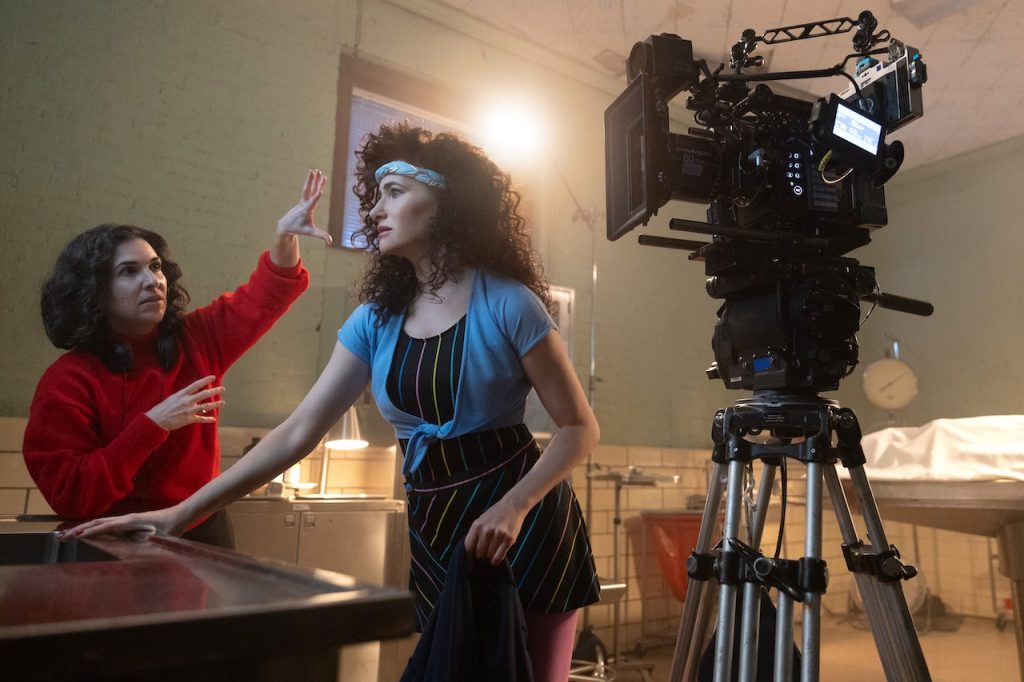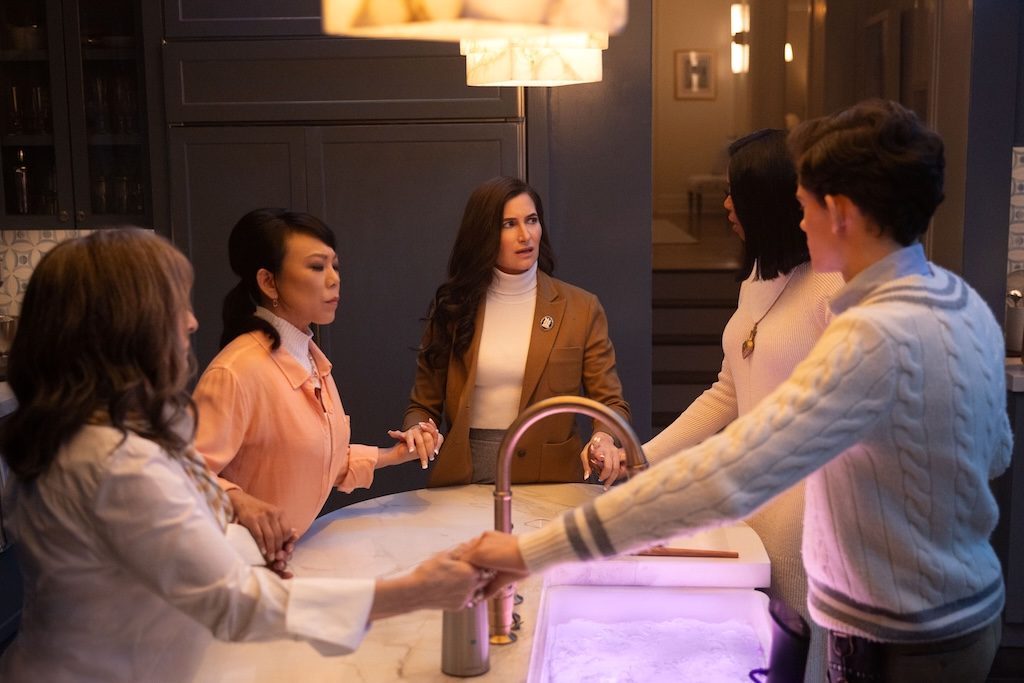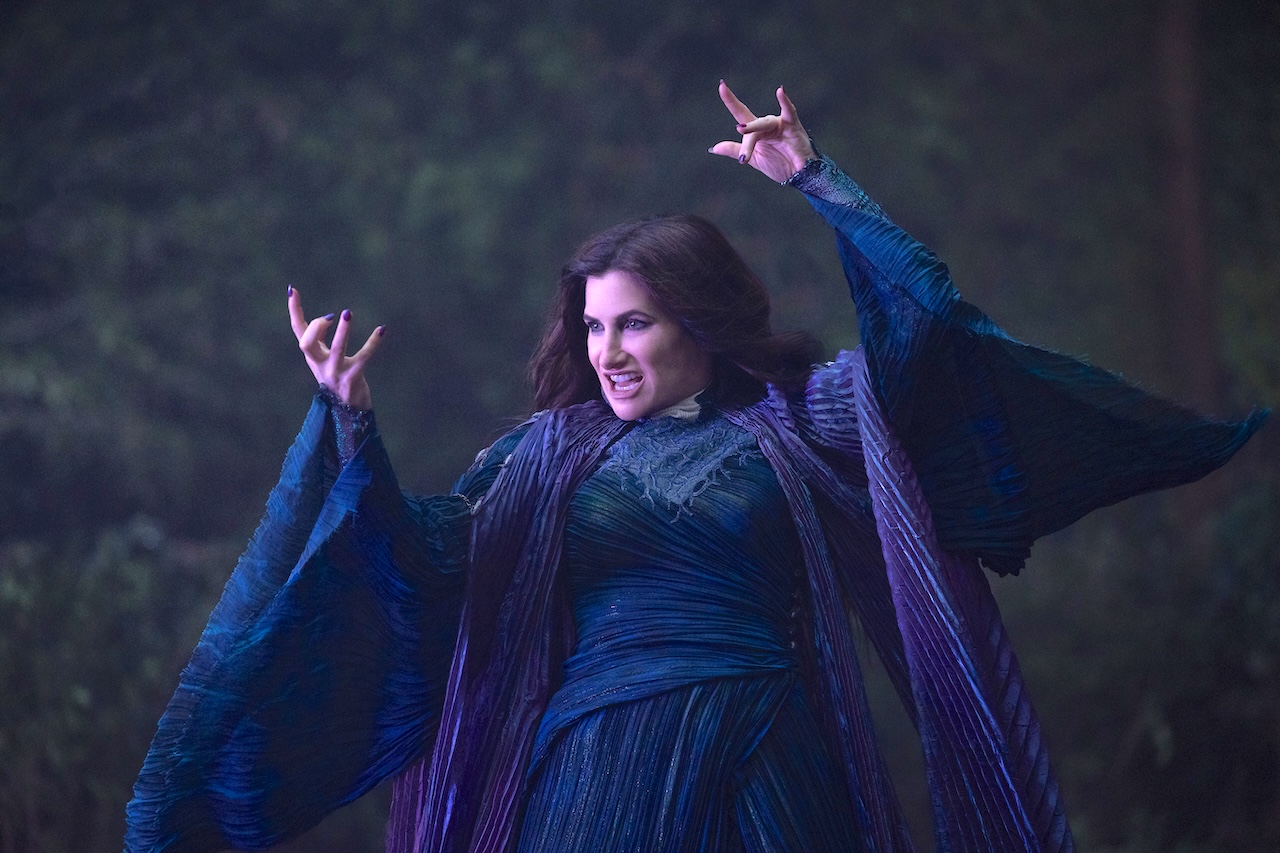“I wasn’t a comic person. I wasn’t a superhero person. But I was always a genre person,” Jac Schaeffer reflects, describing an unexpected journey that would lead her to helm some of Marvel’s most innovative projects.
The Twilight Zone and Black Mirror became crucial inspirations for Schaeffer’s storytelling approach. “The amount of storytelling packed in… what you can accomplish in a small amount of time with a huge idea, as long as it is tethered to a person or group of people that you care about,'”she notes. These anthology series taught her that impactful narratives could be delivered in compact timeframes, a skill that would prove invaluable in her later work.
As the creator of WandaVision and Agatha All Along, Schaeffer has become one of Marvel’s most trusted storytellers, but her path to superhero narratives was anything but traditional. “You can have the coolest idea ever, but if it’s not grounded in emotion and character, it’s not going to last,” she explains, discussing her 2009 indie film Timer, a sci-fi romance about a device that counts down to the moment you meet your soulmate.

(Jac Schaeffer and Agatha Harkness (Kathryn Hahn) on set. Photo by Chuck Zlotnick
“For me, it never really lands unless there’s an emotional hook,” Schaeffer explains. “I think that that is the trick. Otherwise, it’s like yeah, you don’t sort of relish the meal and it doesn’t stick with you.” This philosophy would become central to her approach to genre storytelling, whether working on independent films or major studio projects.
Inspired by Eternal Sunshine of the Spotless Mind, she discovered that ambitious concepts didn’t require massive budgets – they needed heart. This early success led to more high-profile writing opportunities, including work on The Hustle and Black Widow, where she honed her ability to balance character-driven stories with larger-than-life concepts.
“It felt so simple to me. It was an enormous concept that was done elegantly, for a price, practically in a lot of ways.”
The Source IP of Wanda is “Trauma”
Her breakthrough into the Marvel universe came with WandaVision, a project that would challenge traditional superhero storytelling. “The IP of Wanda is trauma. That is what is in the comics, and that was carried forward into the movies, into the MCU,” she says.
The series, which blended classic sitcom homages with supernatural elements, earned 23 Emmy nominations and proved that superhero stories could push creative boundaries while maintaining emotional depth.
Building on this success, Agatha All Along, offered even more creative freedom. “There was more fabrication and invention on Agatha than there was on WandaVision,” she notes. The spinoff series, starring Kathryn Hahn, allowed Schaeffer to explore themes of otherness and persecution through the lens of witchcraft, blending horror elements with comedy while maintaining dramatic stakes.
While the project came with some predetermined elements – they knew they wanted to do Wanda, Vision, and sitcoms – Schaeffer brought her own take on execution and emotional depth. ‘Everything has to be connected,” she insists, describing her approach to universe-building.
“For me, it is whatever work I’m doing, I want it to feel like it’s its own universe, that everything is connected to everything else and everything has symbolism and meaning that is resonant inside of the organism itself.'”
The Writers’ Room
Schaeffer’s approach to running a writers’ room reflects her own journey from indie filmmaker to showrunner. “What I need most of all in my room are idea machines,” she states. Before assembly, she shares a detailed document outlining her vision, character arcs, and areas for exploration – a practice she developed through years of pitching and developing projects.

Lilia Calderu (Patti LuPone), Alice Wu-Gulliver (Ali Ahn), Agatha Harkness (Kathryn Hahn), Jennifer Kale (Sasheer Zamata) and Teen (Joe Locke) Photo by Chuck Zlotnick
Her evaluation of potential writers focuses on originality over technical perfection, a philosophy that stems from her own experiences breaking into the industry. “If someone has a script where it’s a really provocative premise and they don’t stick the landing in the script, I am totally fine with that.” This approach led her to discover talents like Megan McDonnell, who started as a staff writer on WandaVision and went on to write The Marvels.
Her approach to building a writers’ room is both methodical and intuitive. “I like to have a document that I share with the writers that I hire in advance of the writer’s room so that we all come into the room with a strong sense of what the vision for the show is,” she explains.
For Agatha All Along, this meant specifically seeking out horror fans, witchcraft enthusiasts, and queer voices to match the show’s themes. “I hired people who were interested in the various aspects of witchcraft. It is a very queer show. I hired queer folks for that, for the conversation and the voice of that.”
Writing for Kathryn Hahn
The success of her Marvel projects owes much to collaborative relationships with actors. “She’s the reason we made the show,” she emphasizes about Kathryn Hahn, who originated the role of Agatha Harkness in WandaVision. Their creative partnership exemplifies Schaeffer’s talent for building shows around strong performers while maintaining thematic depth.
The addition of Aubrey Plaza to Agatha All Along further demonstrates her knack for casting that enhances storytelling. “She is an agent of chaos and there’s an electricity to her both in person and on screen,” she explains. “Aubrey can take a sentence that I thought could only be interpreted one way and she turns it upside down.”
As one of Hollywood’s prominent female showrunners, Schaeffer approaches representation with nuance. “I don’t really look at it as fixing misconceptions,” she says. “I just think it’s about authenticity and it’s about dimension… I want to see the women and the people that I know in my life for all of their complexity reflected on the screen.”
Advice for Screenwriters
Looking back on her journey from independent filmmaker to Marvel showrunner, she offers candid advice to emerging writers, “I was very afraid of my representation early on. I was really worried about what my agents thought of me, and I would tell myself to stop that right now.”
She emphasizes the importance of embracing the learning process, “When you’re starting out, you get it wrong initially, and that’s part of the journey. You have to learn to stand up for yourself and learn to value what makes you unique.”
For aspiring creators, Schaeffer’s path from Timer to Marvel demonstrates how staying true to one’s creative vision while embracing collaboration can lead to unexpected and rewarding opportunities. Her final piece of advice is characteristically direct, “Finish something.”
This interview has been condensed. Listen to the full audio version here.
More: [Jac Schaeffer Talks ‘Black Widow’ & ‘The Hustle’]
More: [Jac Schaeffer Talks ‘WandaVision’]

